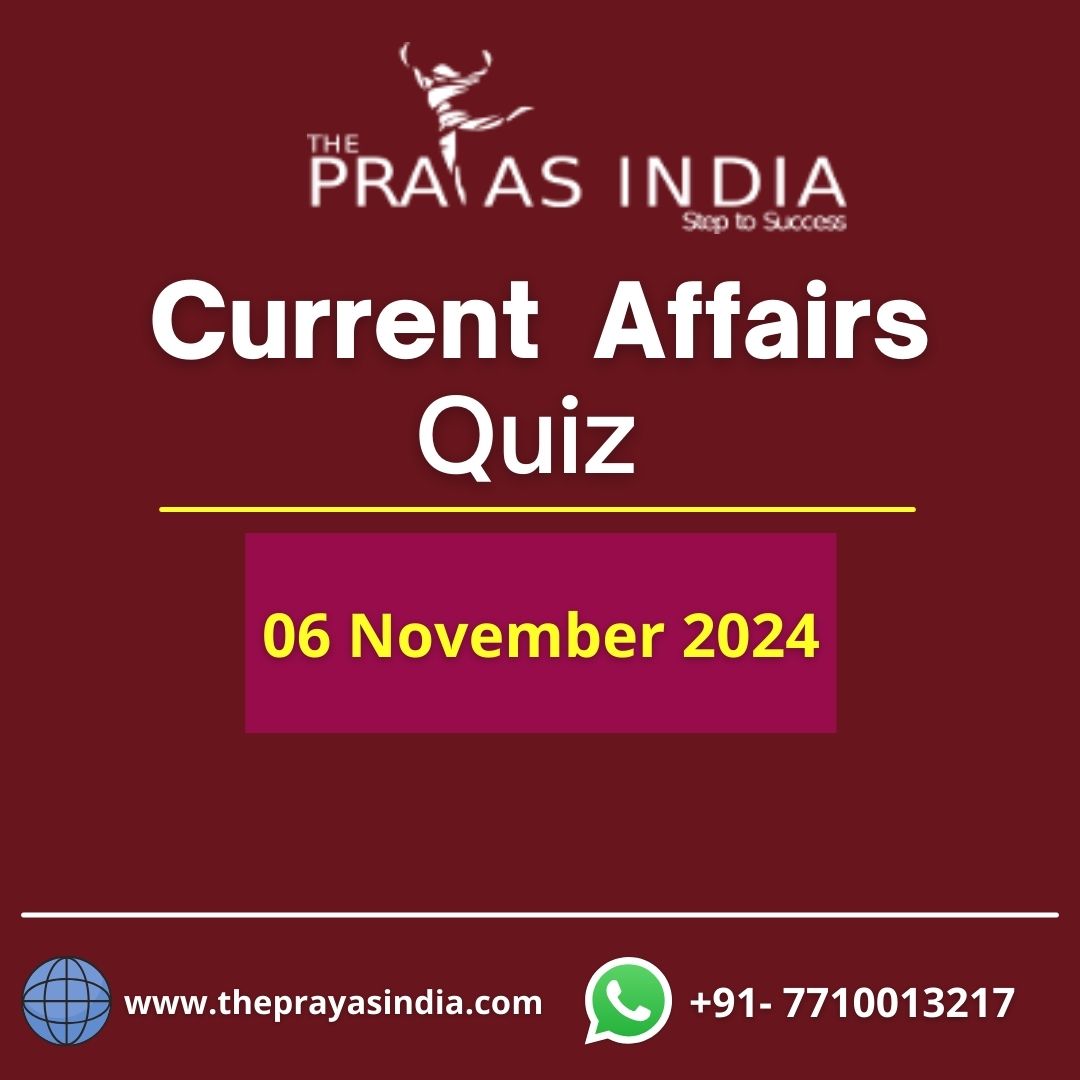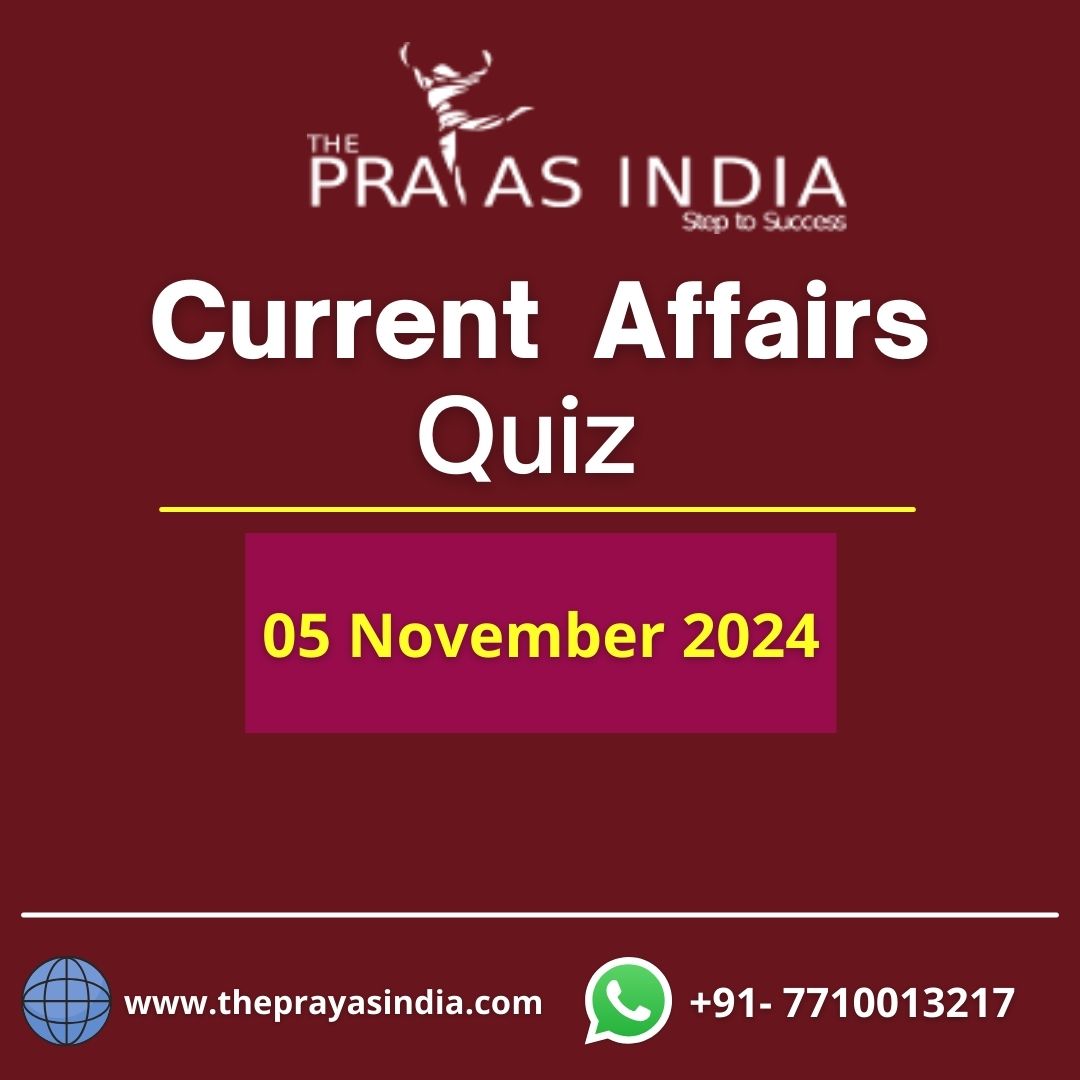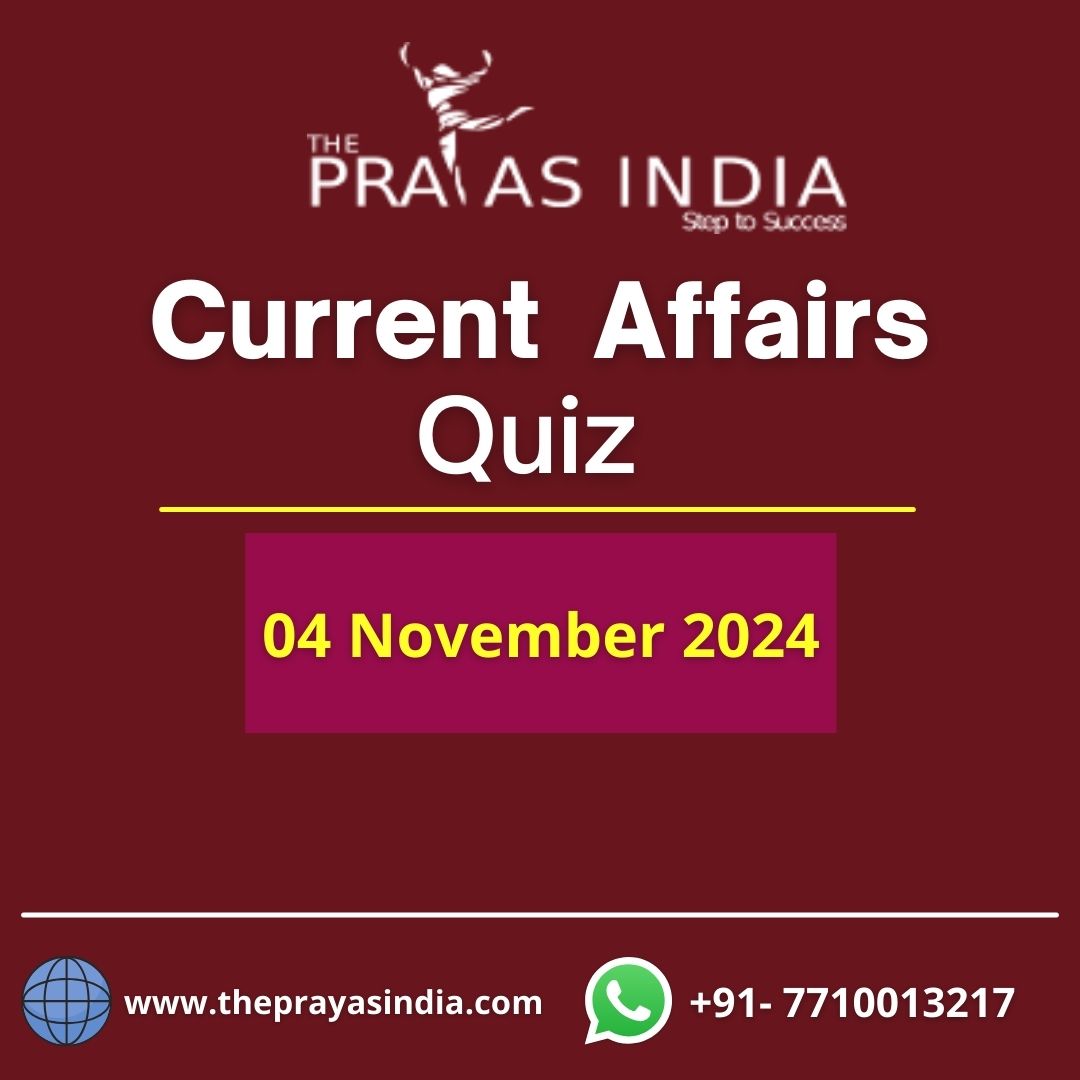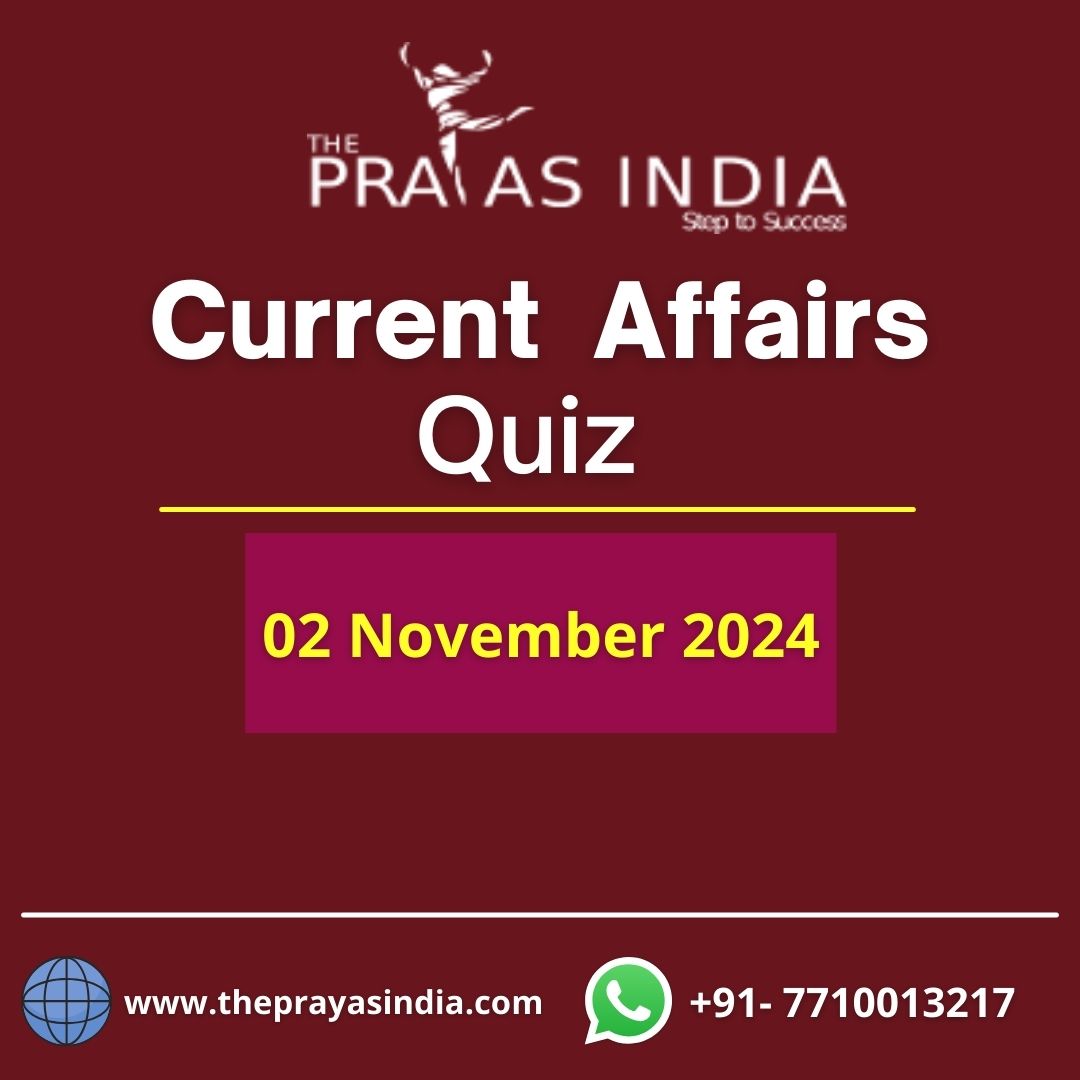Q 1. Take into account the following statements about exclusive economic zones:
- A zone in the sea designated by the United Nations Convention on the Law of the Sea is known as an Exclusive Economic Zone (EEZ) (UNCLOS)
- It typically reaches a distance of 200 nautical miles from land.
- The coastal state has the authority to explore and exploit, as well as the duty to protect and manage, both living and non-living resources, within the EEZ.
- It belongs to the state as a sovereign territory.
Which of the aforementioned statements is true?
- 1, 2 and 3
- 2, 3 and 4
- 1, 3 and 4
- 1, 2, 3 and 4
A – Explanation
- The first three statements are true.
- An exclusive economic zone (EEZ) is defined by the United Nations Convention on the Law of the Sea (UNCLOS) as a region that, generally speaking, extends 200 nautical miles from the coast and in which the coastal state has the right to explore and exploit as well as the duty to conserve and manage both living and non-living resources.
- The fourth statement is untrue.
- The EEZ exclusively permits resource rights, in contrast to the territorial sea and the contiguous zone. With very few exceptions, it does not grant a coastal state the authority to forbid or restrict the freedom of navigation or overflight.
- A coastal State assumes jurisdiction over the exploration and exploitation of marine resources in its adjacent section of the continental shelf, which is defined as a band extending 200 miles from the shore, under the Exclusive Economic Zone (EEZ) concept, which was adopted at the Third United Nations Conference on the Law of the Sea (1982).
Q 2. Which of the following nations is the Dnieper River located in?
- Germany
- Ukraine
- France
- Russia
B – Explanation
- The administrative hub of Kherson Oblast is the Ukrainian port city of Kherson.
- Kherson, a significant shipbuilding hub and regional commercial hub, is situated on the Black Sea and the Dnieper River.
- Russia took control of it. Russian troops have left Kherson, allowing the Ukrainian army to reclaim some of the city.
Q 3. Take into account the following statements on monkey pox:
- It’s a zoonotic disease, monkeypox.
- It is brought on by the orthopoxvirus known as the monkeypox virus.
Which of the aforementioned statements is/are false?
- 1 only
- 2 only
- Both 1 and 2
- Neither 1 nor 2
D – Explanation
- Both of the statements are true.
- A zoonosis is a disease that can spread from animals to people, such as monkeypox. Near tropical rainforests, where the virus-carrying animals live, cases are frequently discovered.
- Squirrels, rats taken from Gambian slums, dormice, various monkey species, and other animals have all shown signs of monkeypox virus infection.
- A rare condition known as monkeypox is brought on by infection with the monkeypox virus. The Orthopoxvirus genus is part of the Poxviridae family, which includes the monkeypox virus.
- The variola virus, which causes smallpox, the vaccinia virus, which is used in the smallpox vaccine, and the cowpox virus are all members of the orthopoxvirus genus.
- Two outbreaks of a disease resembling the pox occurred in colonies of monkeys held for research in 1958, giving rise to the term “monkeypox,” which was then coined.
Q 4. Take into consideration what is said about the United Nations Convention on the Law of the Sea (UNCLOS):
- It is the only international agreement that lays out a foundation for sovereign authority in maritime areas.
- It is a specialised UN agency.
- The UNCLOS established the International Seabed Authority (ISA) and the International Tribunal for the Law of the Sea (ITLOS).
Which of the aforementioned statements is true?
- 1 and 2 only
- 2 and 3 only
- 1 and 3 only
- 1, 2 and 3
C – Explanation
- The first statement is true.
- An international agreement from 1982 known as the United Nations Convention on the Law of the Sea (UNCLOS) lays out the legal guidelines for marine and maritime operations.
- It also goes by the name “Law of the Sea.”
- It divides marine areas into five main zones: the High Seas, Exclusive Economic Zone (EEZ), Contiguous Zone, Territorial Sea, and Internal Waters.
- It is the only international agreement that lays out a foundation for sovereign authority in maritime areas. It gives certain maritime zones various legal statuses.
- It serves as the framework for offshore governance among coastal nations and seafarers.
- The second claim is untrue.
- UNCLOS is not a department inside the UN.
- A specialised UN organisation is the International Seabed Authority.
- The third statement is true.
- The International Seabed Authority (ISA) was created to coordinate, manage, and oversee all mineral-related activities in the international seabed region (also known as “the Area”), which lies beneath the majority of the world’s seas and is outside the purview of state sovereignty.
- The Third United Nations Conference on the Law of the Sea established the International Tribunal for the Law of the Sea (ITLOS) as an intergovernmental body.
Q 5. Take into account the following statements about the Global Dashboard for Vaccine Equity:
- The OECD, WHO, and University of Oxford are working together on it, and the entire UN system is supporting it.
- It demonstrates the significance of accelerating vaccination equity by fusing the most recent socioeconomic data with the most recent COVID-19 vaccine data.
Which of the aforementioned statements is true?
- 1 only
- 2 only
- Both 1 and 2
- Neither 1 nor 2
B – Explanation
- The first claim is untrue.
- The World Health Organization (WHO), the University of Oxford, and the United Nations Development Programme (UNDP) collaborated to create the Global Dashboard for Vaccine Equity.
- The second claim is true.
- It combines “the most recent socio-economic information” with the “latest statistics on the global roll-out of COVID-19 vaccines to explain why accelerating vaccine equity is not only vital to ensuring a speedier and fairer recovery from the pandemic with benefits for all.”
- Vaccine equity states that, regardless of a country’s economic standing, vaccines should be distributed across all nations depending on need. The distribution and access to vaccinations ought to be guided by the idea that everyone has the right to the best possible level of health, regardless of their race, religion, political beliefs, level of income, or other social circumstance.




